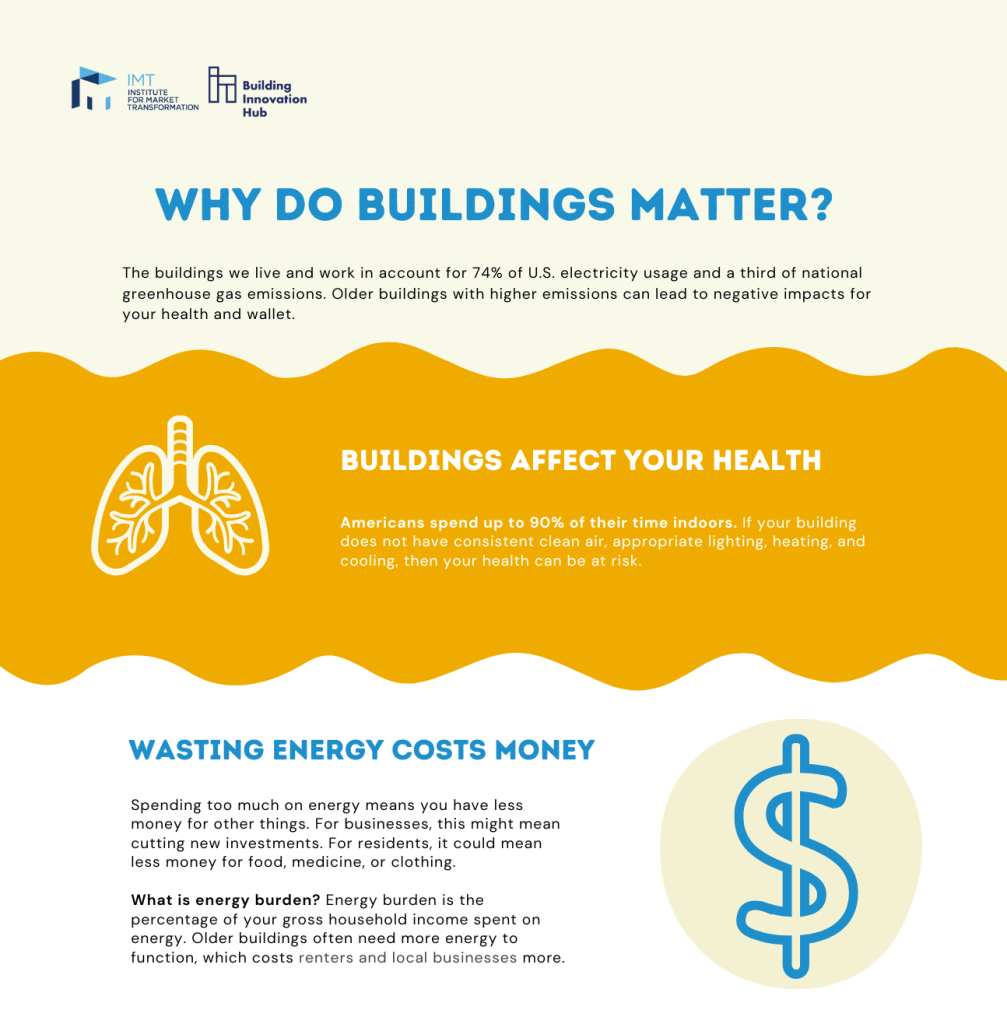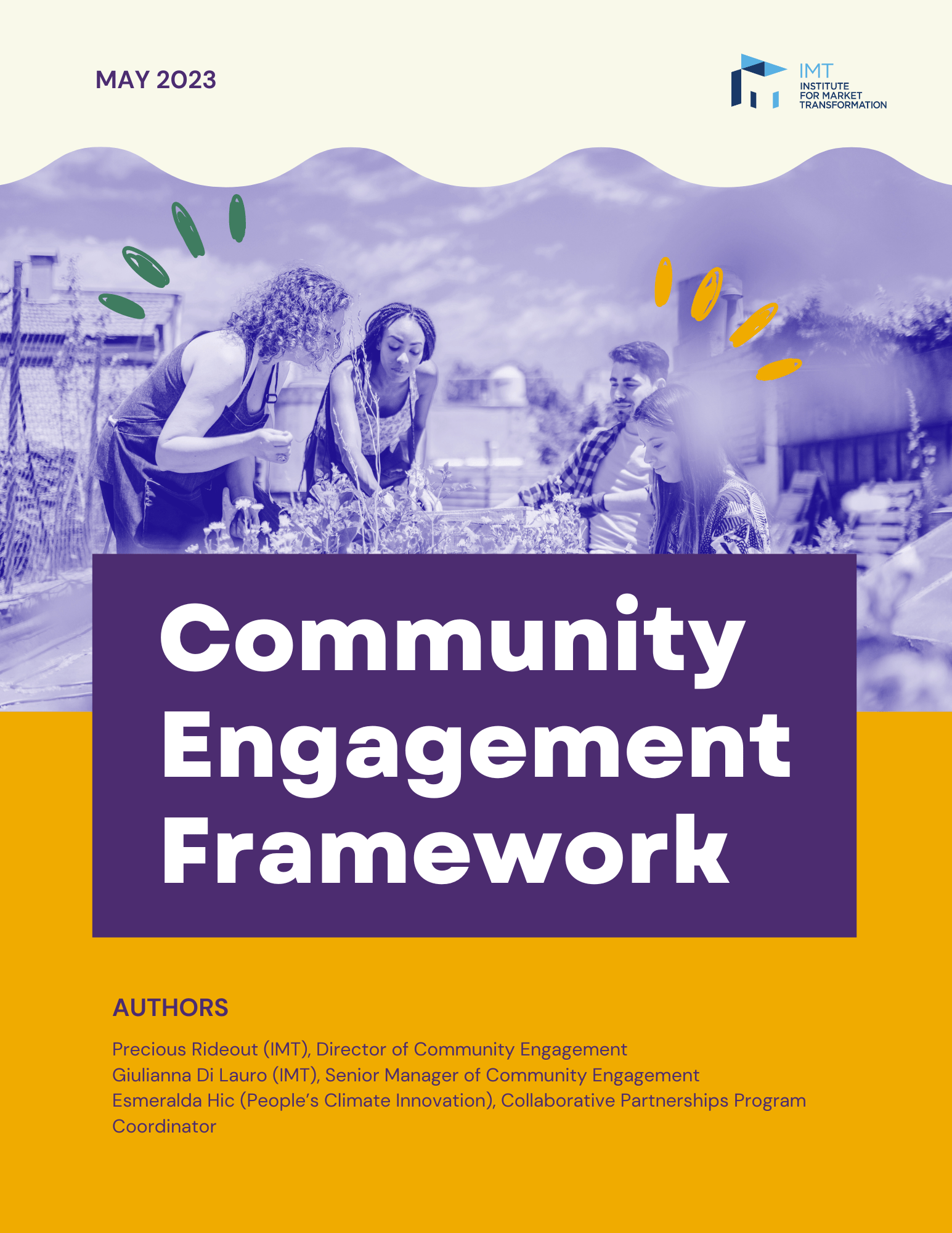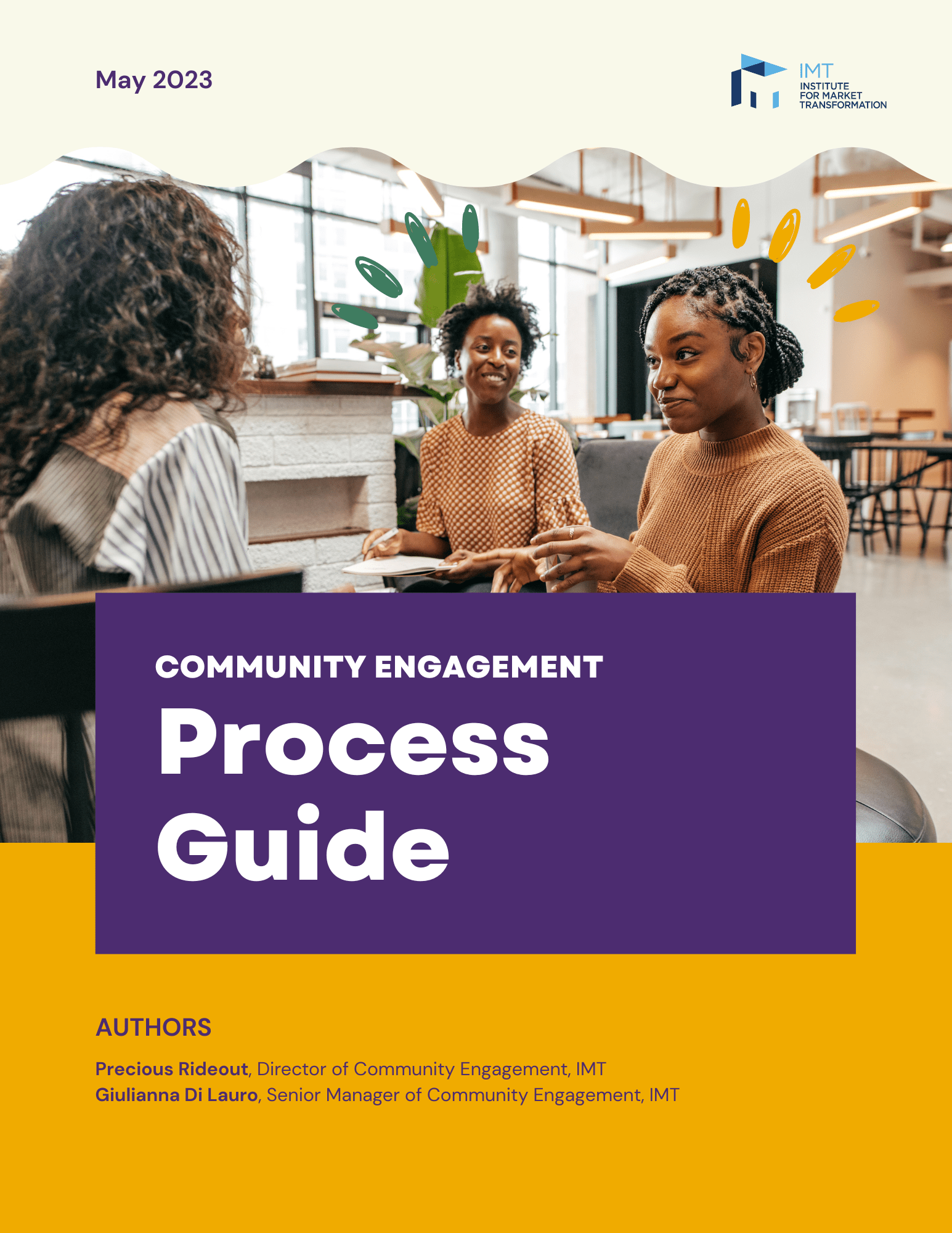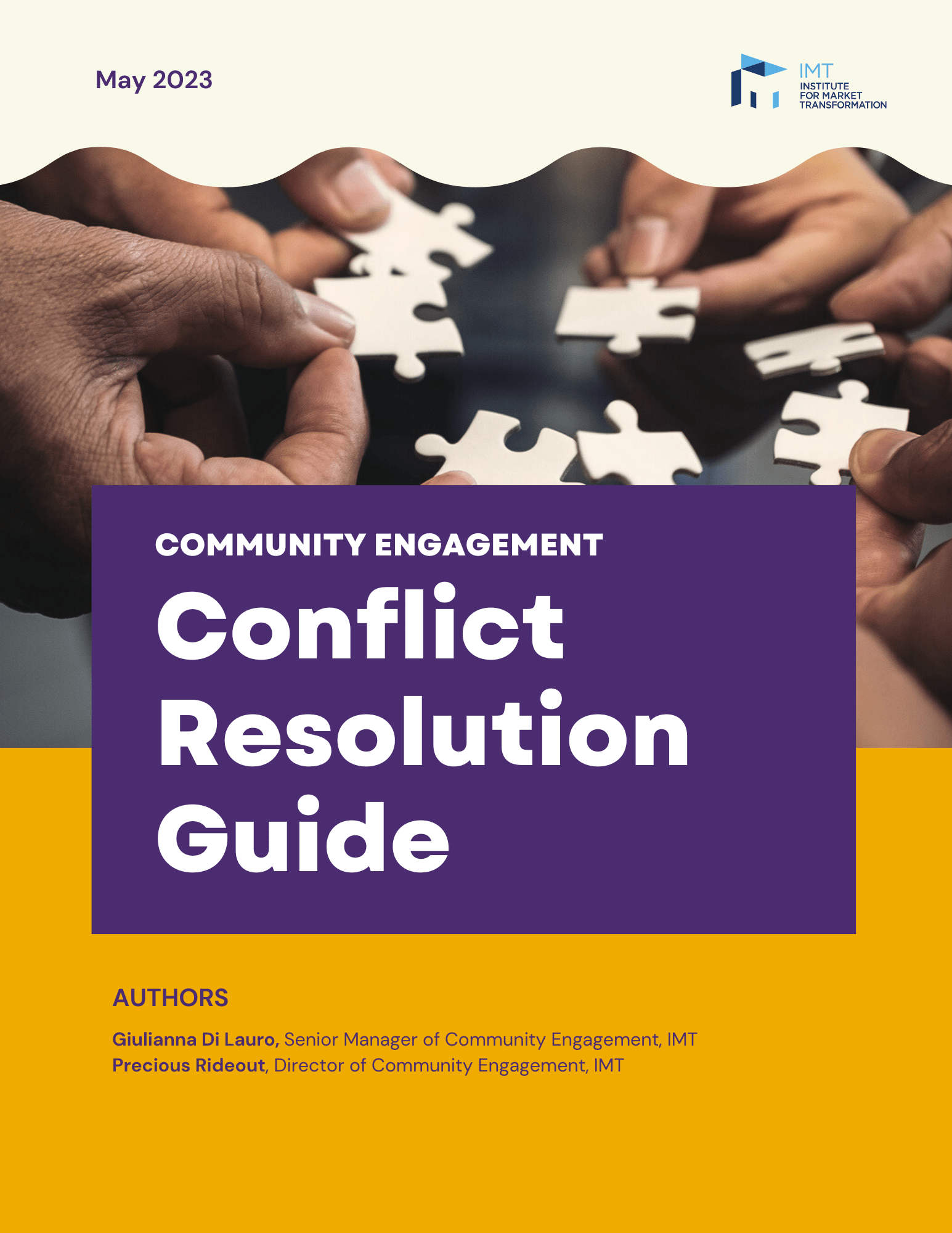Why do buildings matter to climate justice?

We spend 90% of our lives indoors.
Life happens inside of buildings. From work to rest, our health
and productivity depend on built environments.

Extreme weather harms our health.
Severe heat could lead to lost work hours and 11% more deaths for low-income residents.Energy expenses are not equal.

Energy expenses are not equal.
People of color pay 20–45% more on energy bills, better buildings provide an opportunity to stop and correct systemic inequities.

Designing and implementing building policies alongside
LOCAL COMMUNITIES
A building performance standard (BPS) policy is a set of standards designed to reduce carbon emissions in buildings by improving energy, gas and water use, and peak demand, consequently reducing their cost.
These standards become stricter over time, driving continuous, long-term improvement of buildings.
Communities should be part of the development of these and other building-related policies, since they’re the first to feel the impacts of climate change.
IMT’s Community Engagement team provides communities with the tools and personalized assistance to ensure that residents are actively participating in the decisions that affect them the most.

We have found that IMT operationalizes the values in their community engagement framework well. They are always available to answer questions and discuss strategy.
People for Community Recovery (PCR),
Chicago, IL



Explore how buildings impact health, affordability, and climate,
and how we can make them work for everyone.
Check out our Equitable Decarbonization Learning Series with explainers for important topics around decarbonization, including why buildings matter and how they can impact and benefit our communities.

Resources to help you lead
Whether you are a community advocate, policymaker, or avid learner, you’ll find accessible tools in our resource collection to inform and support your work.
Explore tools, guides, and insights to take action on climate advocacy and equitable solutions.

Let’s Talk!
Ready to explore how we can support your goals?


